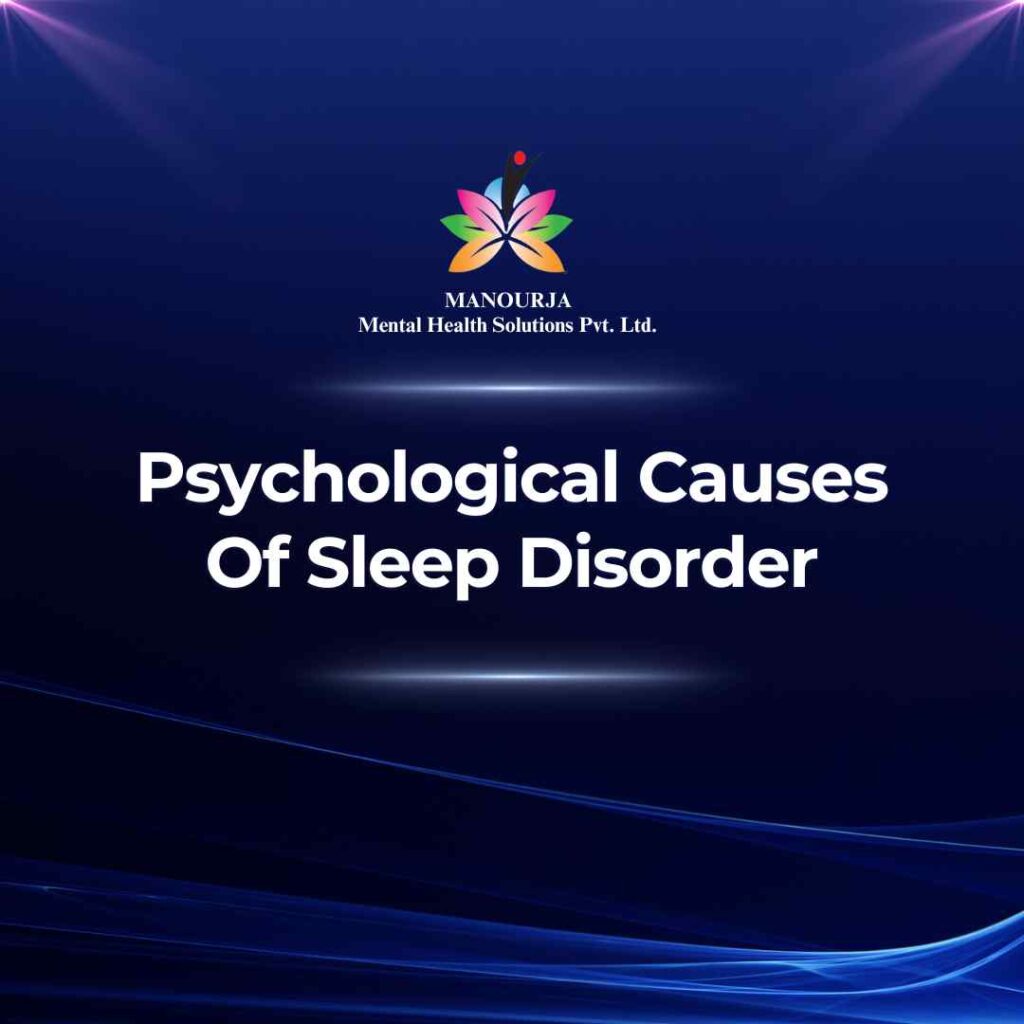Psychological Causes of Sleep Disorder

Sleep disorders profoundly impact psychological well-being, often resulting in a range of symptoms that can affect everyday functioning and overall mental health. Here are some of the key psychological symptoms associated with sleep disorders:
- Irritability and Mood Swings: Lack of sleep can significantly affect mood, leading to irritability and mood swings. Even minor inconveniences can provoke strong emotional responses when you are sleep-deprived.
- Anxiety: Many individuals with sleep disorders experience increased levels of anxiety. Concerns about sleep, as well as the effects of sleep loss on daily life, can contribute to a heightened state of anxiety, which in turn can make it even harder to fall asleep.
- Depression: Chronic sleep disruption is strongly linked to depression. The cumulative effect of ongoing sleep deprivation can lead to feelings of sadness, despair, and a decreased interest in life. The relationship between sleep and depression is often bidirectional, with each condition potentially exacerbating the other.
- Cognitive Impairments: Sleep is crucial for cognitive processes such as memory, attention, and problem-solving. A lack of sleep can result in noticeable deficits in these areas, making it difficult to concentrate, make decisions, or remember important information.
- Decreased Stress Tolerance: When you are well-rested, your ability to handle stress is stronger. Sleep deprivation reduces this resilience, making everyday stresses seem more overwhelming and difficult to manage.
- Impaired Judgment: Sleep disorders can impair your ability to make sound decisions. When sleep-deprived, you may find it harder to assess situations accurately and make choices that are good for your well-being.
- Social Withdrawal: Due to fatigue and irritability, people with sleep disorders may withdraw from social interactions. This isolation can exacerbate feelings of depression and anxiety.
- Emotional Volatility: Without adequate sleep, you may experience emotional instability or overreactions to situations that normally wouldn’t elicit such a strong response. This volatility can strain personal and professional relationships.
- Paranoia and Suspiciousness: In severe cases of sleep deprivation, individuals might begin to experience paranoia or have unjustified suspicions about others’ intentions.
- Hallucinations: Extreme cases of sleep deprivation, particularly in disorders such as narcolepsy, can lead to hallucinations. These are not just simple illusions; they are complex, vivid experiences that can be visual, auditory, or involve other senses.
Addressing the psychological symptoms of sleep disorders is crucial for restoring a healthy sleep pattern and improving mental health. Treatments may include behavioral therapy, such as Cognitive Behavioral Therapy for Insomnia (CBT-I), medications, lifestyle changes, and proper management of any underlying mental health conditions.
At MANOURJA, we believe in the transformative power of counseling. Our experienced therapists offer a safe and supportive space where you can explore your thoughts, emotions, and challenges. Through personalized counselling sessions, we’ll work together to develop coping strategies, build resilience, and achieve lasting positive change. Discover the path to a healthier, happier you with MANOURJA counselling services.
MANOURJA Rehabilitation Services
At MANOURJA, we’re dedicated to helping you in rebuild your life, after difficult times. Our rehabilitation services focus on understanding what you need to move forward, whether you’re recovering from addiction, trauma, or any psychological – social challenges. We create personalized plans, that are all about helping you, regain your strength and find hope again. With a caring team by your side, you’ll have the support to make real progress and take steps toward a brighter, healthier future.
